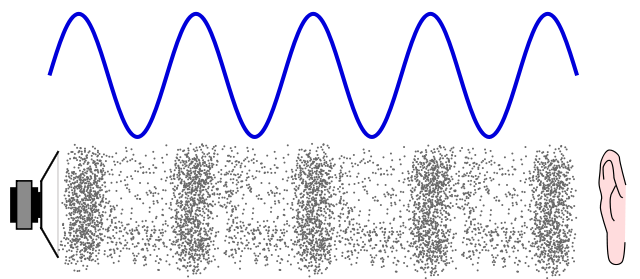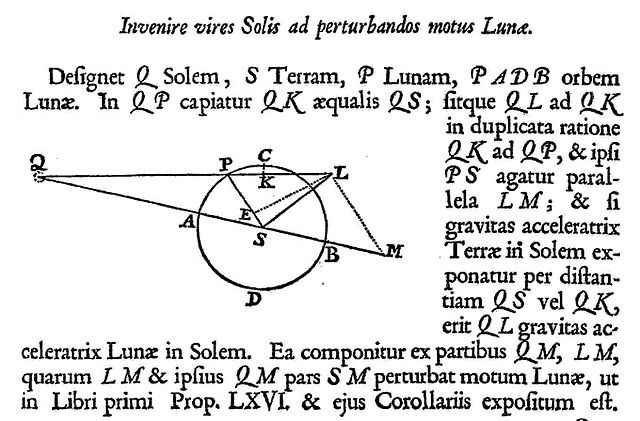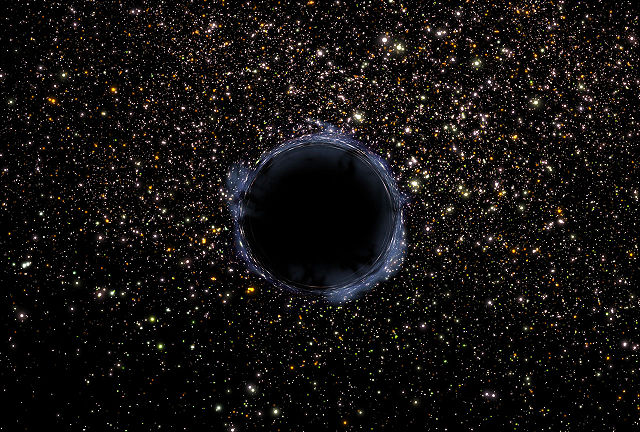
Sad news for any dreamers out there who envision a future in which humans have managed to bring time to a halt — it’s never going to happen. Stopping time is not a technological difficulty, it’s a physical impossibility.
Upset? You have the laws of nature to thank.
But although physics prevents us from creating a world where time doesn’t move, we can use physics to imagine what such a world would be like.
Let’s assume for just a moment that you have achieved the impossible and have stopped time. Keep in mind this scenario is purely hypothetical. So, what is it like? Discussing this will partially address why it is not a possibility, but will not be its main focus. It will also help us figure out what it is that we want out of stopping time. So, by your frame of reference, time is stopped. All the people around you have frozen solid. Wind stops blowing, water stops running, and the Earth stops turning.

Image Credit: Wikimedia Commons
Before you run off with glee to rob a bank or stick your friend’s finger up their nose, there are some things you should be aware of. This is all under the assumption that everything that makes up you, all the cells, microbes, and atoms, are the only things that are still affected by time. Everything else is at a stand-still. To keep this thought experiment relatively easy, let us also assume that the laws of nature are still in effect. That is, we will contemplate how the laws would behave in a frozen world, the laws having not disappeared entirely because their effect is not in motion. This is a slight contradiction because we are breaking a few physical laws by stopping time. As you begin to take your first steps, you realize you are stuck in place. The atmosphere is also frozen so you are stuck in position, unable to maneuver around the molecules in the air. On this note, you would be unable to breath, as there is no way to intake the motionless air into your lungs. Perhaps you try to call out for help (forgetting you are the only conscious person around) and find that no sound can resonate through the environment, being incapable of using the atmosphere as a transmitter of sound waves. Then you freeze to death, the world having ceased to emit any heat.
So let’s say you and the atmosphere still move, or perhaps you have the ability to reinstate time/motion into things you interact with. So you can push the atmosphere out of the way, as you do when you walk in normal everyday life, or use it for oxygen. We will also give you heat, so that you can survive longer than a few moments. Come to think of it, we should put the entire electromagnetic spectrum back in motion – heat radiation is a part of the electromagnetic spectrum, in which our visible light also lies – otherwise you would be unable to see, as photons would not be moving into your eyes. If you had the ability to move, you could move into the light and capture it as you move along, but light is constantly moving around you from all directions, so you would capture light from every direction around you. It is unlikely your brain would be able to decipher this information. So you get heat, light, sound, breath, and the convenience of moving. There is one other obstacle we will have to deal with, though this one isn’t as bad as freezing to death.

Image Credit: Wikimedia commons
A few seconds in, and you will realize that gravity no longer affects you. When Newton first described gravity in Principia, the force was believed to move instantaneously across space, having no speed limit. If this were true, then you would probably be able to have gravity in a timeless world. However, since Newton, the notion of infinitely fast gravity has been debunked. It has to follow the universal speed limit (light speed) like everything else.
The Impossibility
What we have talked about so far have been, for the most part, hindrances to your ability to function in a world without time, being the time bound beings that you are. But they do not necessarily describe why this concept is not possible.
Recall that the speed of light – described mathematically as c – is approximately 300,000,000 meters per second. In two seconds, light travels 600,000,000 meters. In zero seconds, light travels zero meters. If time were stopped zero seconds would be passing, and thus the speed of light would be zero. In order for you to stop time, you would have to be traveling infinitely fast. Nothing can travel faster than light (let alone infinitely fast) without gaining infinite mass and energy, according to Einstein’s theory of relativity.
The Possibility
There are ways you could theoretically “stop time“, but many of these have hindrances as well. The most convenient way to do it is to change your definition. We don’t really need to stop time completely, but perhaps enough so that you could observe the world moving at a very slow rate. Here’s how to do it. One way is to go to a universe where the laws of physics allow for this. Another conceivable way is to freeze the universe, thus slowing molecular motion. You would not be able to completely stop the universe this way, because as of right now, zero degrees Kelvin (absolute zero) has not been reached, and it may not be possible. Another issue is that heat is an energy, and energy is only ever transferred. Because of this you would need to displace the heat into another place, but what other place would that be besides the universe, and how could you possibly do this? This applies even to removing most of the heat from objects and not all of it, so maybe we could find a way to technologically freeze a planet or a local area so that molecular motion is slower. Trouble is you would probably kill everybody; and imagine how enjoyable a nearly absolutely frozen wasteland would be.
Let’s do the opposite, something that was done in the movie Clockstoppers. In this movie, they speed up the atoms of a person so that time is moving extremely slow, but not frozen. Trouble with this is that molecular motion and heat are linked. If your molecules are moving vibrating quickly, you would also be very very hot… And it’s hard to predict how this would effect your perception of things.

Image Credit: Wikimedia commons
Another way to “stop time” is to put whatever it is you wish to stop near a black hole. I won’t go too in depth with black holes as we already have plenty of articles on the subject, but say you threw something (a clock, perhaps) into a black hole, as it got closer and closer to the black hole it would appear to slow down. But from its perspective, you would speed up.
Much is left to be understood about how time works and what it really is, but it is a great mind exercise to think about things like traveling through, perceiving, and stopping time. It is a difficult subject to ponder on as time is not it’s own substance, as far as we understand it, but the succession of events within our own perception of the world. It deserves pondering, as it is the most fundamental force in the universe. It lets everything exist, and change, and I doubt imagining something outside of it is easy for time-bound beings like us.
One final way to stop time: Take a picture.